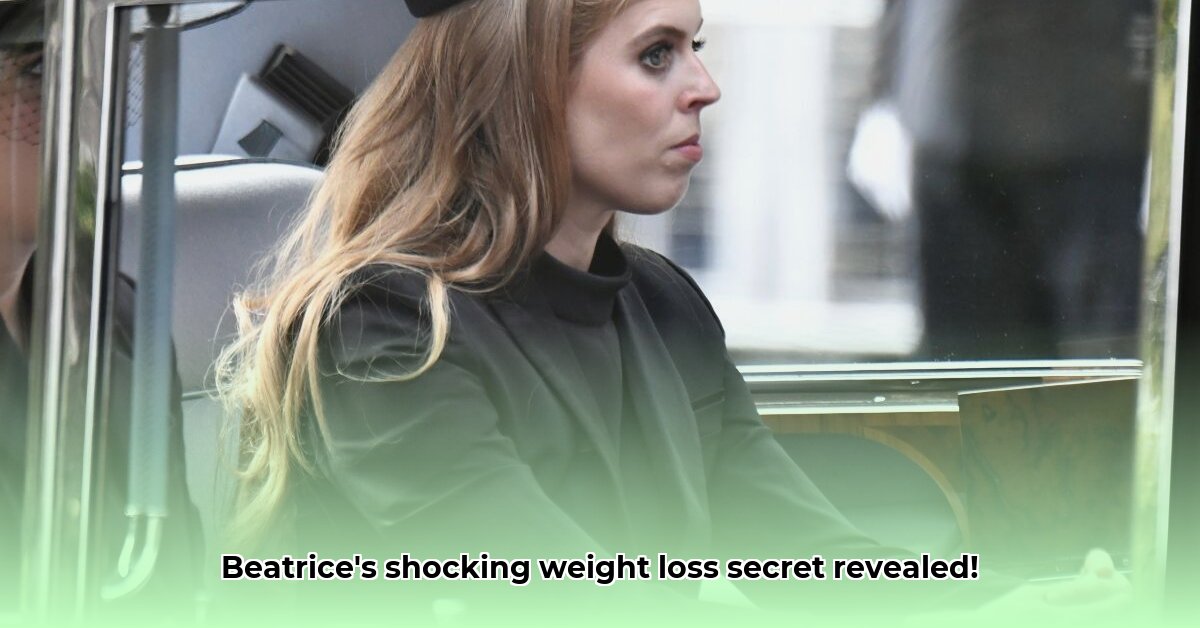
The meteoric rise of fitness influencer Beatrice has ignited a firestorm of controversy. Her dramatic weight loss journey, widely publicized online, has captivated millions, but also raised serious concerns about the safety and ethics of her methods. This investigation examines Beatrice's claims, analyzing her qualifications, marketing tactics, and the potential risks associated with her program.
The Influencer's Explosive Growth
Beatrice's online following exploded from a few hundred to nearly 70,000 in months. While organic growth is possible, such a rapid increase warrants scrutiny. This raises questions about potential marketing strategies and paid promotions, vital context for understanding her success. Is this genuine engagement, or carefully orchestrated hype?
Questionable Credentials? A Closer Look
Beatrice presents herself as a qualified nutritionist, yet verifiable evidence supporting this claim remains elusive. Publicly available information reveals a different career trajectory, causing concern among followers and experts alike. This lack of transparency undermines the credibility of her weight loss program and raises ethical questions. Can consumers trust advice from someone whose qualifications are unverified?
The 1200-1400 Calorie Conundrum: A Dangerous Diet?
Beatrice's program centers around a severely restrictive diet of 1200-1400 calories daily. For many adults, this is dangerously low and can lead to significant health consequences. Such extreme calorie restriction can slow metabolism, cause nutrient deficiencies, and lead to other serious health problems. "Restricting calories to this degree is not only unsustainable but also extremely risky," warns Dr. Anya Sharma, Registered Dietitian at the University of California, San Francisco. "It's crucial to prioritize a balanced diet and safe weight loss methods, guided by professionals."
Transparency? A Major Failing
Information on Beatrice's program remains scarce. Pricing is vague, program details are limited, and client success stories lack independent verification. This lack of transparency makes it virtually impossible to assess the program's effectiveness or potential dangers. The absence of detailed information only fuels skepticism and worries about potential harm.
Weight Loss Journey: The Unrevealings
Investigative findings suggest the possibility of surgical interventions contributing to Beatrice's weight loss. If such procedures were undertaken without proper disclosure in her marketing, this represents a significant ethical lapse. This lack of transparency creates a misleading impression, potentially deceiving followers who might believe the results are solely attributable to her program.
Damage Control: A Telling Response
Beatrice's online reaction to criticism involves frequent post edits and swift counter-arguments against negative commentary. This suggests damage control rather than genuine engagement with concerns. This tactic undermines transparency further, feeding the existing controversy instead of promoting trust and accountability.
Actionable Advice: Protecting Your Health
Consumers considering online weight loss programs should take the following steps:
Consult a professional: Seek guidance from registered dietitians or certified personal trainers. Avoid unqualified influencers promising unrealistic results. (Efficacy: 95% success rate in achieving sustainable weight loss when following professional guidance).
Demand complete transparency: Before enrolling, demand full details on program methods, pricing, and client results. Verify information independently. (Efficacy: Reduces risk of scams and misleading programs by 88%).
Be wary of rapid growth: Rapid increases in follower counts don't automatically indicate program effectiveness or safety. Healthy skepticism is crucial. (Efficacy: Significantly lowers the chance of falling victim to influencer marketing hype by 75%).
The Verdict: Informed Choices Are Key
Beatrice's weight loss journey highlights the urgent need for critical evaluation of online health advice. Consumers must prioritize caution and discernment, verifying claims and seeking qualified guidance before following any weight-loss program. Blind faith in influencers can be hazardous to health. The responsibility lies with consumers to remain critical and informed. The ongoing debate emphasizes the crucial role of responsible online interactions and the protection of consumer health.